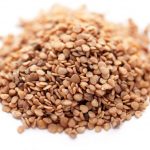
Geranium – sources, health benefits, nutrients, uses and constituents at NaturalPedia.com
Monday, September 11, 2017 by Jhoanna Robinson
http://www.naturalnewsherbs.com/2017-09-11-geranium-sources-health-benefits-nutrients-uses-and-constituents-at-naturalpedia-com.html

Geranium, which has the scientific name Geranium maculatum, which sometimes is also called cranesbill, is endemic to the northeastern United States, where it is considered a natural remedy for most ailments for over a century.
Geranium’s flowers come in different colors. As such, it is often used as an ornamental plant, with people not knowing about its glorious healing powers, and an overall health booster.
List of known nutrients
- Calcium Oxalate
- Gallic Acid
- Potassium
- Sarsapogenin
- Smilagenin
- Tannin
- Yuccagenin
Medicinal uses for geranium
Geranium has anti-inflammatory and anti-hemorrhagic properties. Applied topically, it can help alleviate hemorrhoids. It also acts as a natural astringent to take care of skin conditions such as sores.
Geranium gets rid of the toxins in your body. Its strong antioxidant content gets rid of harmful free radicals that steal important nutrients from the body.
Geranium is good for the hair. It regulates the secretion of sebum into your hair, so that it keeps producing natural oils that maintain your hair’s luster and shine.
Geranium promotes cell buildup and repair by recycling dead cells and regenerating new ones, ensuring increased cell growth.
Geranium is good for the skin. With every day pollutants taking a toll on our skin and making it dull and dry, we definitely need a natural treatment rather than a commercial product that can further exacerbate our skin conditions rather than rejuvenate our skin’s freshness. It can also be used as a natural deodorant as it eliminates body odor.
Body systems supported by geranium
Geranium is good for the digestive system. It soothes ailments of the digestive tract and can be used to treat diarrhea and other gastrointestinal issues such as Crohn’s disease, which is inflammation of the intestines.
Geranium is good for the excretory system. It can be used to treat bladder infections and other uterine and kidney infections. It also induces proper urine flow, thereby enabling your body to get rid of toxic materials and excess elements like acid, bile, fat, sodium, and water, etc.
Geranium is good for the female reproductive system. It addresses abnormal bleeding during menstruation. It can also benefit the male reproductive system.
Geranium is good for the ocular system. It serves as treatment for moderate retina irritations and conjunctivitis or pinkeye.
Geranium is good for the respiratory system. It prevents weather-related illnesses from affecting the body such as nose infection or sore throat.
Geranium is good for the nervous system. It prevents inflammation of the brain cells, thereby preventing the onset of neural degeneration and ensuring that your cognitive functions such as memory, logical thinking, and motor control are not impaired and lessen the risk of Alzheimer’s disease or dementia in old age.
Geranium is good for the endocrine system. It normalizes hormone secretion to mainitain mental stability and prevent mood swings. It relieves stress, tension, and anxiety and gives off a feeling of relaxation. It also optimizes the functioning of different internal systems so that the body keeps producing proper amounts of acid, bile, and enzymes in our body.
Ways to use geranium
You can obtain geranium essential oils via steam distillation of the stem and leaves.
Geraniums shouldn’t be used by pregnant women or lactating mothers, however, for the tannins in them dry up mothers’ milk.
Where to learn more
Summary
Geranium is good for the excretory, ocular, respiratory, nervous, endocrine, and both the male and female reproductive systems.
Geranium has anti-inflammatory and anti-hemorrhagic properties.
Geranium gets rid of the toxins in your body.
Sources include:
Tagged Under: Tags: geranium






